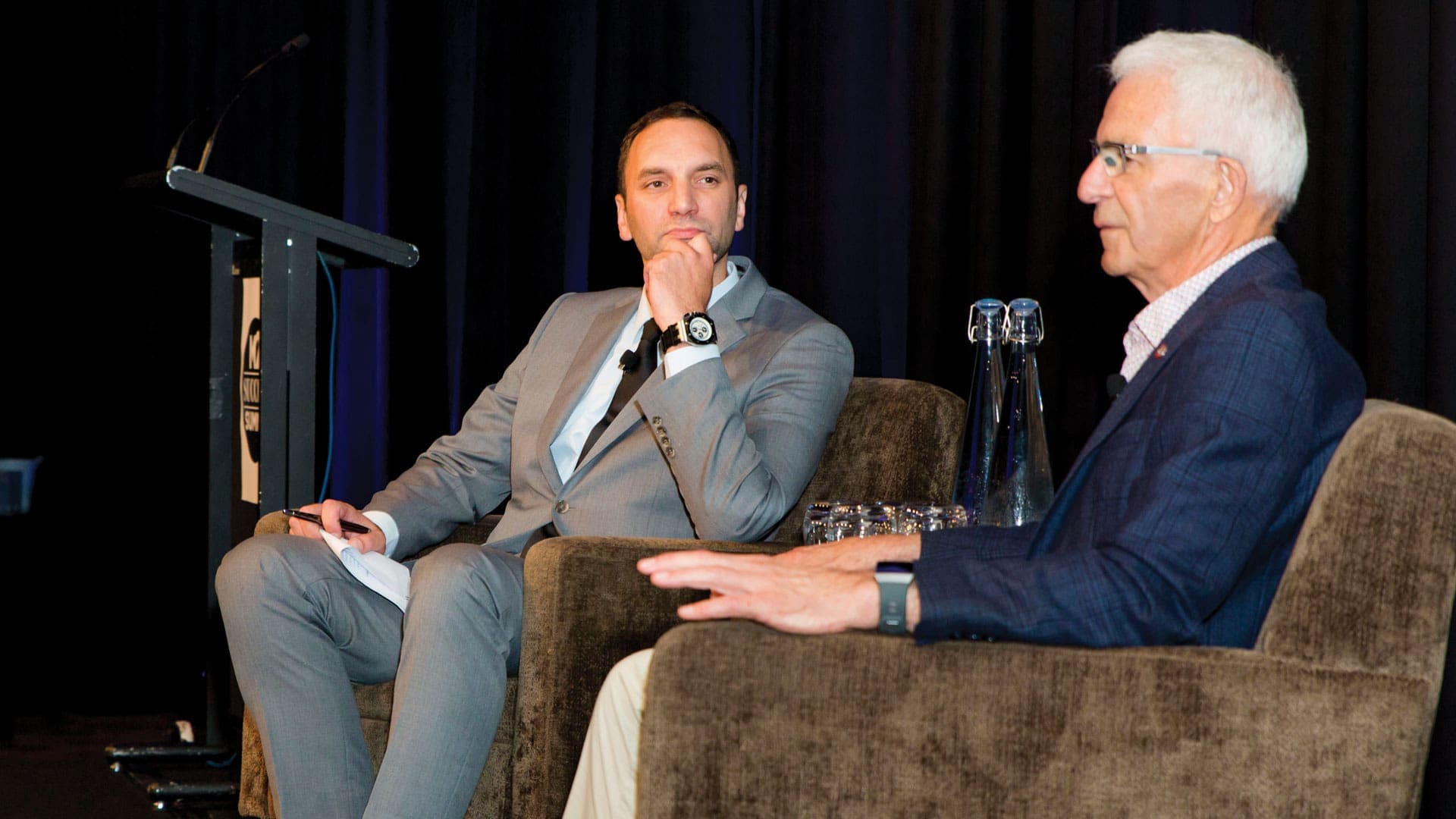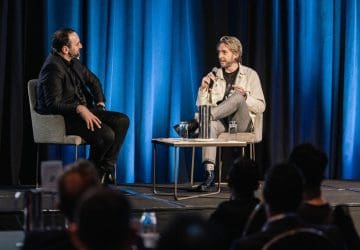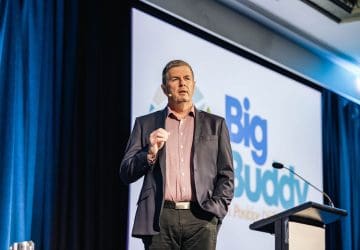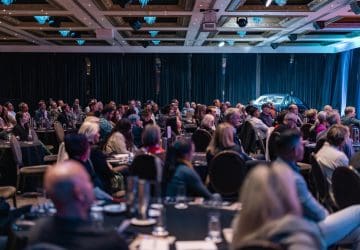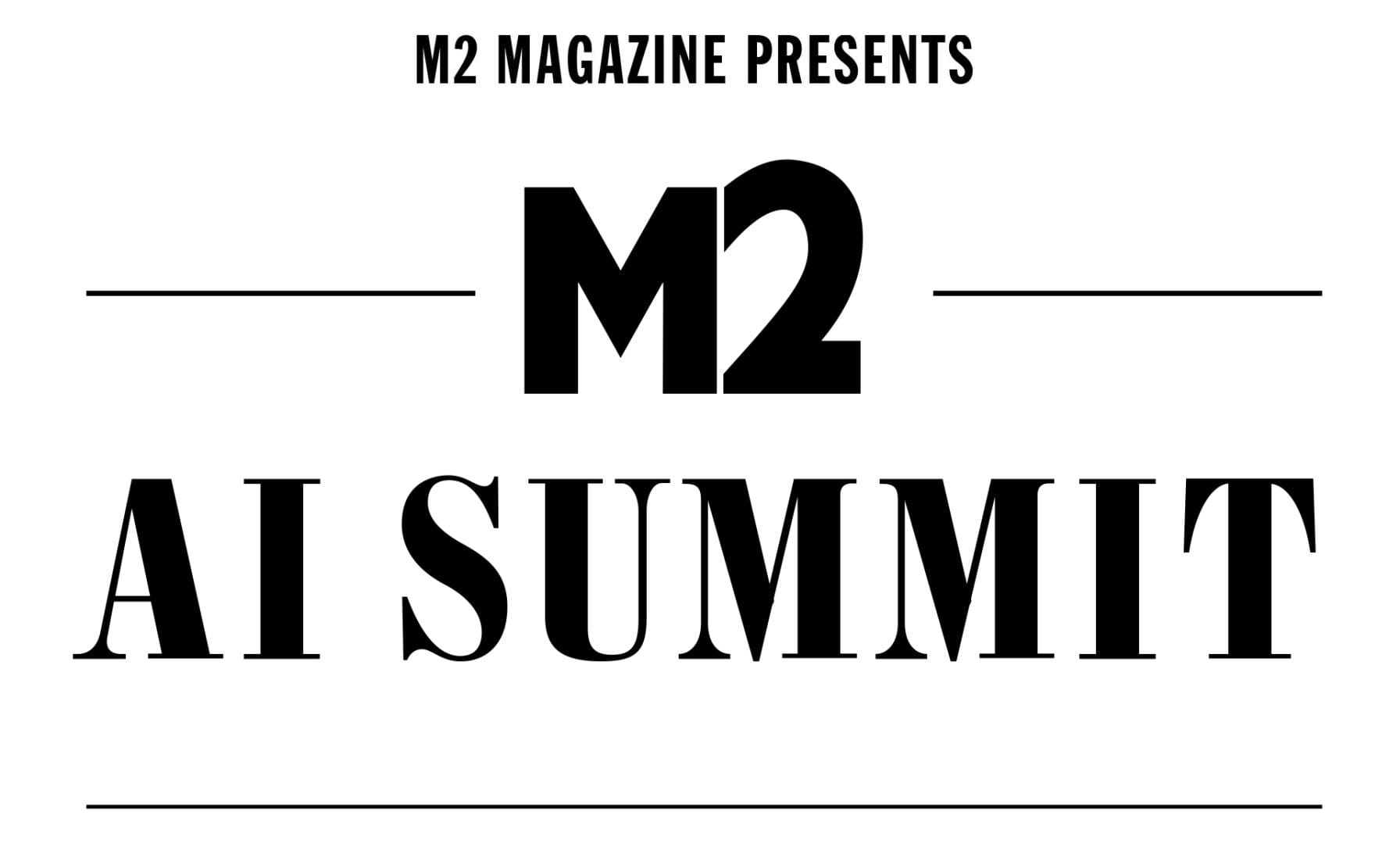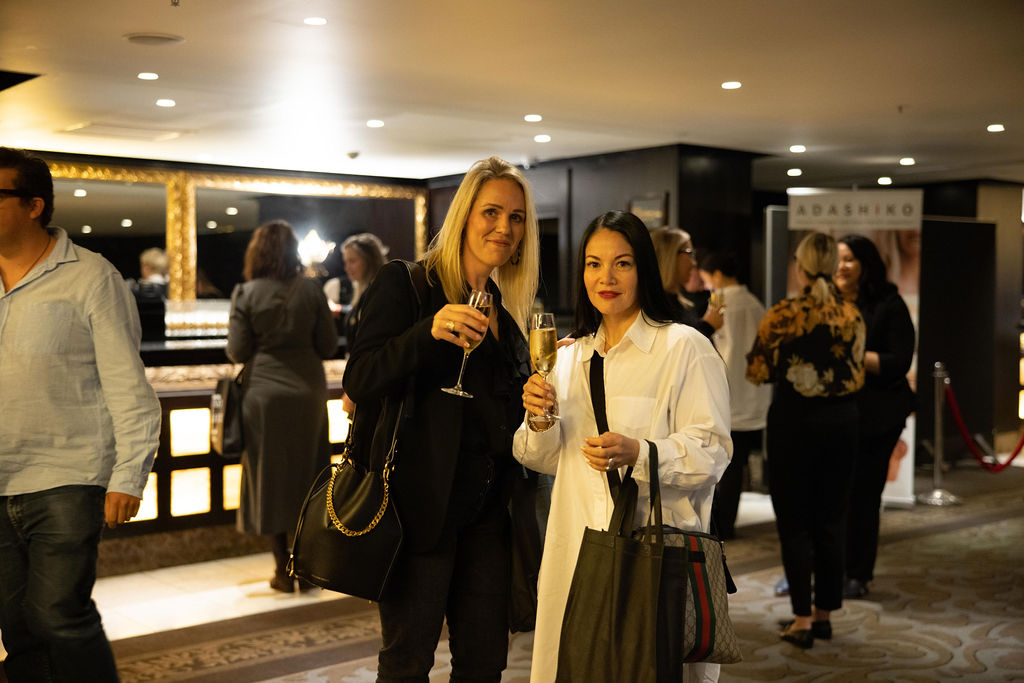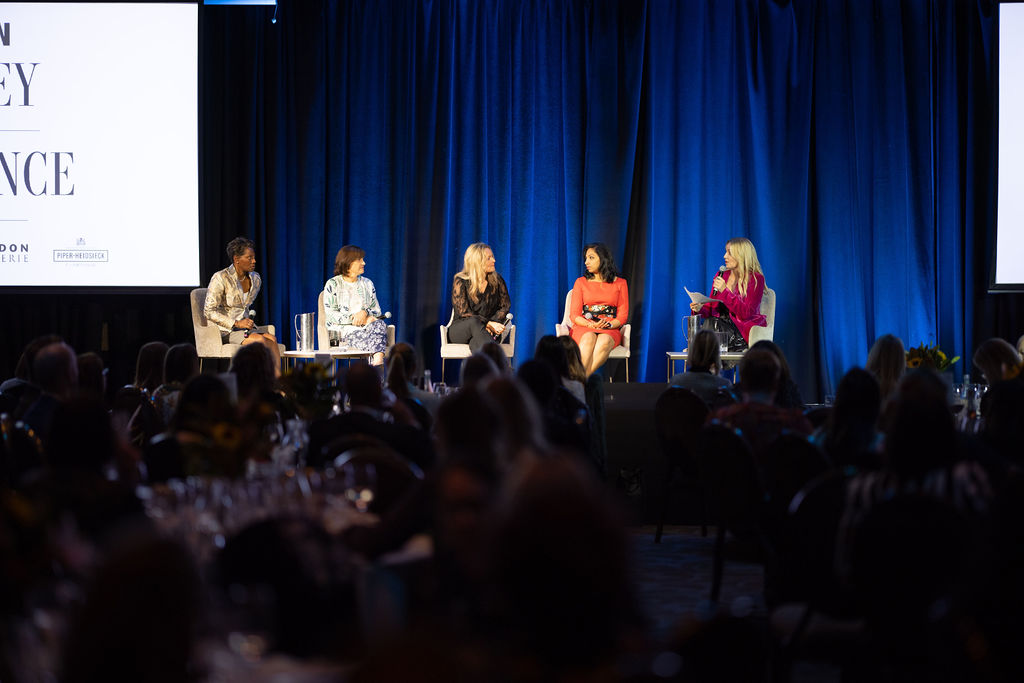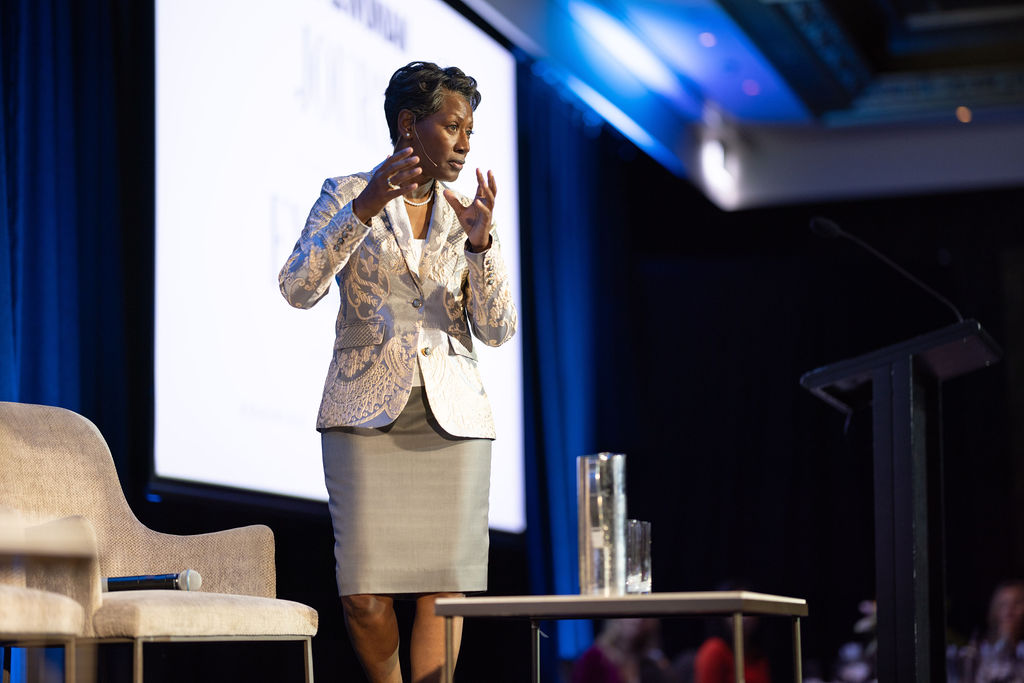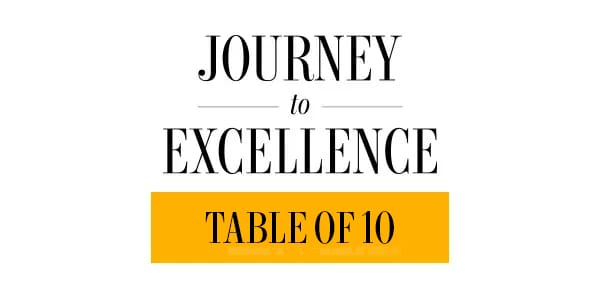M2 Success Summit With Sir George Fistonich
On Friday 22 February 2019, 130 business minds became part of a community of professionals inspired by fellow New Zealand leaders and visionaries, celebrating success, sharing business insights and building key relationships.
Our Editor, Andre Rowell, talked to inspiring business leaders who are executing on a local and global scale, including Sir George Fistonich, Founder of Villa Maria Wines; Michael Anderson, CEO of MediaWorks; and Max Arshavsky, Co-Founder and CEO of Zenno. After an in depth discussion with Andre, the audience then had a chance to ask the guests their own questions.
Following this, attendees were then welcomed to the Cocktail Networking Hour, where they enjoyed Villa Maria wines, Hallertau beer and Thomson Whisky and had a chance to connect to other like-minded business people, as well as our guest speakers.
First up, we talk to Sir George, who back in 1961 when there wasn’t even really a wine industry here, founded Villa Maria. Not only has he built New Zealand’s leading wine award winner, but he has helped build one of the nation’s largest exporters from the ground up, survived numerous multiple economic downturns and has kept Villa Maria privately owned.
When you look around the room and you see the bottles of Villa Maria, do you think about what you’ve built? What do you think a 20-year-old George would say?
Well actually, at that period we had half gallon flagons of port and sherry and blackberry nip and cherry brandy and a bit of rough dry red, the wine industry didn’t really exist. So today, it’s almost 100% different, very different.
Back then, did you have a vision of what was possible?
I did drink a lot of good imported wine as a teenager. Lucky, I had an uncle actually that liked wine and he a theatre so he had a reasonable amount of money so he used to buy a lot of French, German and South African wine. I developed a palate as a teenager.
My parents made me do carpentry. My parents are Croatian and they saved enough money to send my older brother to law school, because basically they were from a foreign country and they couldn’t speak the language properly and they felt they needed a lawyer in the family to protect themselves. In the good old Croatian way, you did what your parents told you then, so I had to be a carpenter and joiner to build houses for my sister and brother and the family, which I didn’t really enjoy but I did my duty and did a four-year apprenticeship, 10,000 hours.
I was wandering through a lot of the vineyards around Henderson, like the Babich’s, a great family company and the Nobilo’s. I got to a stage and thought ‘What the hell am I doing in carpentry?’ So I just changed my mind and decided to be a winemaker and leased a couple of hectares of land. I think I was lucky that I made my mind up early in the piece what I wanted to do.
Was that a passion for you?
It was. I think I am very lucky because a lot of people – take my late brother actually, he loved being a reasonably good lawyer, but he actually could paint. He loved landscape and he loved architecture and he designed a house almost 50 years ago that is quite modern, for my parents. He got to the stage where it was very hard to give law away, and I think quite often he would have been a brilliant architect. He was a good lawyer and he enjoyed it. I think if you work out something you really want to do and it doesn’t matter what happens, you lose money or what have you, change and go and do it.
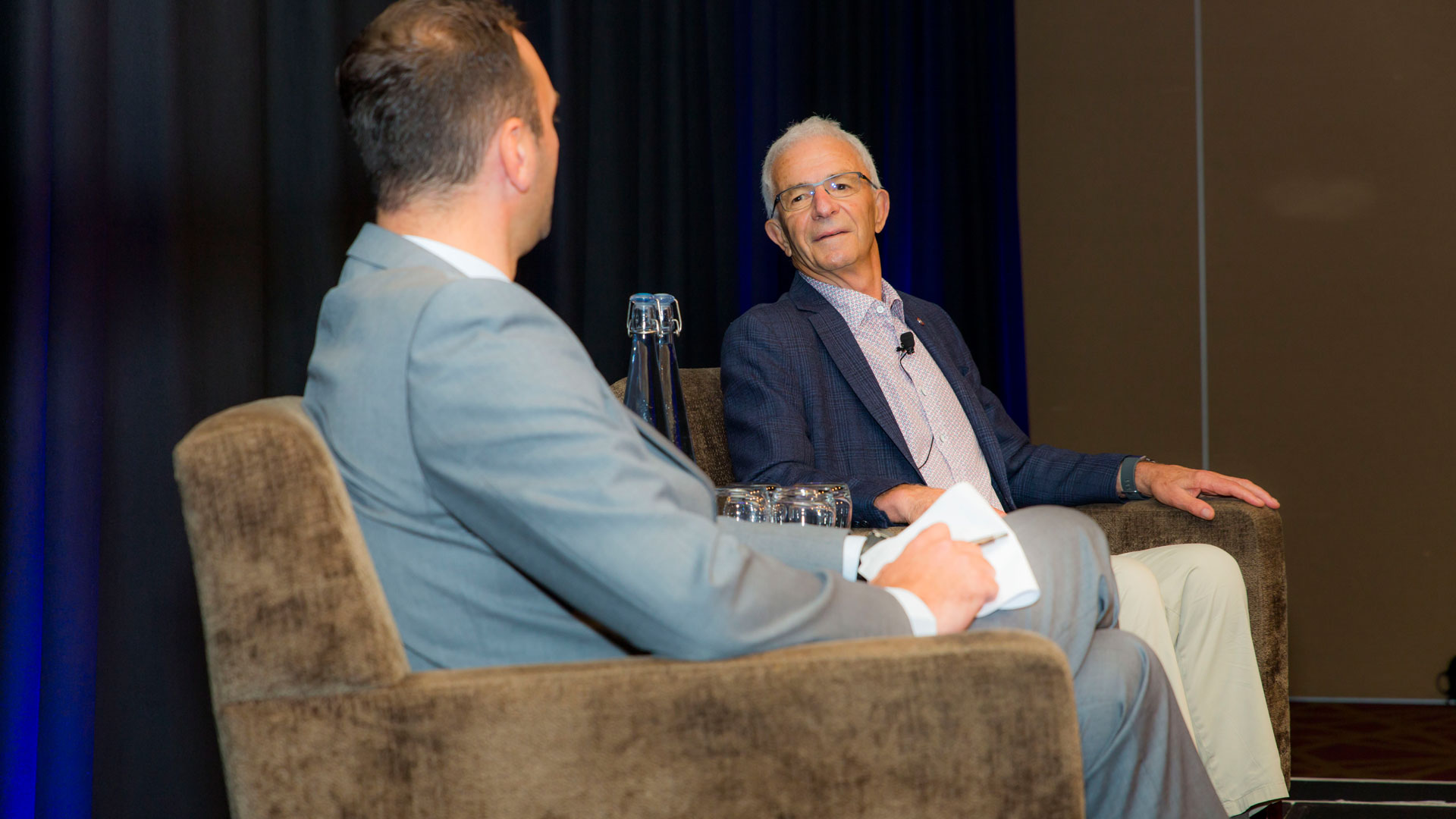
You mentioned before around Henderson, with the Babich’s, and I mentioned before as well with my Dutch grandparents, do you think there is something about an outside perspective that sees potential differently than people who have been living here for a while?
Yeah. Most of the New Zealand wine industry was created by the Croatians. Going back at the turn of the century, quite a few people came before the First World War and a lot of people came after the First World War just to get away from it. We knew that we were going to be overrun by the First or Second World War. My father was in the Austrian-Hungarian First World War. Yugoslavia was part of the Austrian and Hungarian empire.
At the age of about 29, his father and his three brothers and nine sisters, he just told a whole lot of them, ‘Go and catch the next boat and go to America’. And America meant anywhere – California, Chile, Western Australia, New Zealand and my father jumped on a boat and landed in Auckland. His brother got on another boat that landed in Chile and all his first cousins landed in Western Australia. It was a three month trip and they just went up north. We’ve got photos of them in a tent for 5-6 years digging gum to sort out money. Then eventually the ones that actually had partners would bring them over, sometimes 10-15 years later with their families. My father wasn’t married and my mother came over a couple of years later to meet some other guy, but she fell in love with my father so that changed.
You have kept Villa Maria privately owned, but it did get a little bit close sometimes. Can you talk about a little bit of a run in with Brierly?
Yes, I think actually I intended to stay quite a small boutique company, but I really liked the wine and I started making pretty good wine. I started off promoting wine through Radio Hauraki at the same time they started. I won’t tell you about what the parties were like, but it was an interesting story of Hauraki and Villa Maria wines, OK? Brierley Wine then bought Cooks Wine Company, a public company and there was probably a couple of hundred wineries, about 7-8 big ones and they felt it should be like the breweries, where there was only Lion and DB.
They started selling wine at half price, so I lost all my equity. It was about $3.5 million and then had to go into voluntary receivership. Then, shortly after Jim Delegat, from Oyster Bay, he rang me and said ‘I’m going off in a couple of weeks, what is it like?’ I said, ‘It is not that funny, you have got to take the move’. So he went into receivership. Then about three weeks later, Nick Nobilo rang me and he said ‘We’ve run out of money, what are we going to do? I’m going to go into receivership.’ They did an arrangement and sold a whole lot of land, which was probably a bit of a pity because in a sense they would have been betting off going into receivership, but the bank made them sell all their land in a short-term gain. They had some great grapes on that land and they lost their stream of income, so it wasn’t logical, but those things happen.
I felt that when I went into receivership everybody said to me ‘You are finished, you will never recover’. He was quite a tough receiver, and we had debates. He said to me ‘You have got to get rid of half of your staff,’ and I said, ‘No, I run a tight ship’. He insisted and I refused to, but in the end he couldn’t find anybody to get rid of because I was running pretty tight, as you do when you are private company.
The interesting thing, we found out that we had won three trophies in Australia; the best Sauvignon Blanc, the best Pinot Noir and the best dry white wine, which is quite a big trophy. That was when those trophies made a lot, you really could sell heaps of wine on the back of a trophy, and you still can now but it was ten times more effective then. So I decided that we should delay the receivership and got some legal advice by three weeks so it coincided with the embargoed trophy and I thought that would be a good way to launch it, because it was voluntary.
I said ‘We need to fly all our sales reps up from the country,’ and he said ‘No, you are not allowed to tell your staff’. I said, ‘Who said that?’ I always question everything, I always think questioning is a very important thing. I said ‘We should tell them’. In the end, he sort of agreed. I suppose the lesson is you’ve got to be persistent and you never take no for an answer. You might say I broke two rules, and I always call it the law of common sense against the law of stupidity and we use that in the company quite a lot now. I am a very law abiding and never break the law, but if the law is so stupid, then you have got a moral and legal obligation to challenge it. I am very serious about that, and I think that is how I recovered.
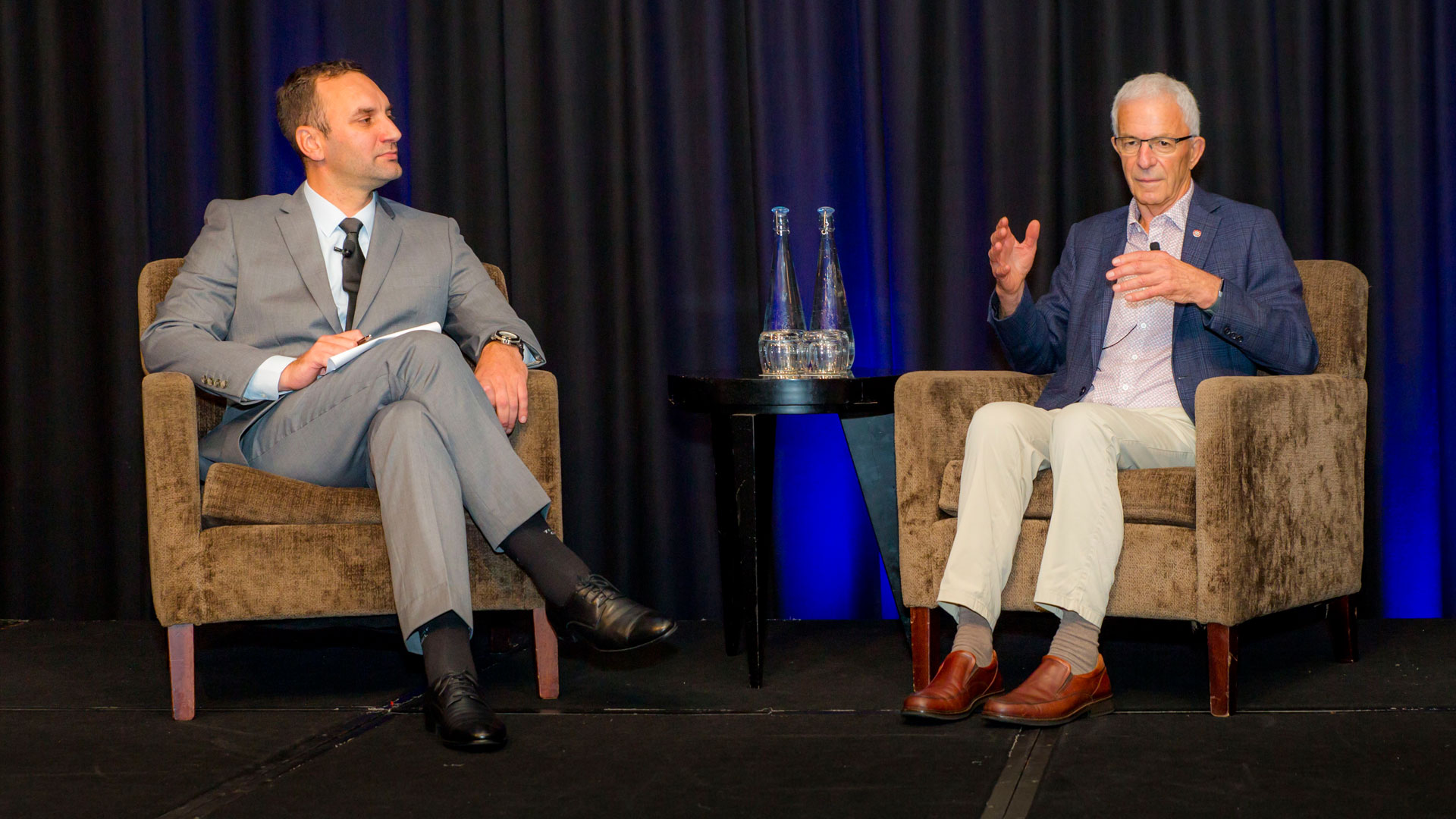
The banks would not agree to delay the liquidation. I couldn’t get anything out of the Auckland team. I tried to find out who the guy was in charge of Wellington and I’ll give it one more go. I used a nice female friend of mine who had an English accent to somehow get the number out and saying she is an English person looking for a long-lost cousin. I rang at 11 o’clock at night and I said ‘Do you have the ability to save a company from going into receivership and totally destroying it?’ I told him the story. He said that is logical, so he delayed the receivership. So that was about two weeks and just in the nick of time. That was three things of going against what was normal through persistence.
Then we organised the three trophies, which were embargoed, to be delivered to Villa Maria from the airport exactly as the TV and press came out at 9 in the morning. So the headlines were ‘Trophy Winning Winery Bulldozed out of Business by Brierley’s’. It was a great headline!
Actually, the night before, our receiver came in and addressed our sales team and all our staff, so we told the whole staff in advance and that was a game changer. Quite a few of the trade people knew that we were in problems, so we got donated a lot of Champagne and a lot of wine and some crayfish. So after we had done a plan of how we were going to recover, we had a rip-roaring party- it was one of the best parties we’ve ever had!
The next morning all the reps were lined up and going off and waving to the press and what have you. We had a plan; they were all going to do a 12-hour day and instead of being depressed and reading the paper, they’re going in and saying that Brierley have bulldozed us out of business. Next thing, our sales went up 30% and Brierley’s got pulled off the shelf and sent back to their winery and we filled all those gaps in. It was actually highly successful and that is really how I recovered actually. Within six months we paid all our debt back.
I had to sell my house, but then I bought another one in Parnell, which was probably better. Mind you, it was a year later. I did take a partner on board, so for a while I was 50% and eventually the arrangement was that I’d buy it back. But we had to to work like hell to make sure we made enough money to buy it back and become family. So, we are totally family owned and private.
The ten companies I started with, with the exception of myself and Oyster Bay, the other 9 that started have all gone international and they just about all lost it. Corbans actually lost it, now Nobilos have lost it and so on. It is quite tough. It is a tough industry to stay private families. You have got to have a passion. We have got a culture, and I think culture is important. Everyone that comes to Villa Maria buys into that culture of private family and award winning. Award Winning is our mantra and we did that as a statement.
When you first start, you don’t have plans or anything, you just make wine and sell it. Last year, we were proud that on our 40th year, we won more trophies at a ratio of about double, or almost 2.5 of any other wine company in New Zealand and been the leading award winner. I think the reason for that is great winemakers, great viticulturists and great vineyards because that is all the foundation. But probably overarching all that is great people. People make a company.
This is back 42 years ago, I went to Australia and I interviewed 60 winemakers, in New Zealand as well. I came back with one assistant but I wasn’t satisfied. Then I got a letter and I read it and I thought there is something about this guy’s experience and background and I think he will make a great winemaker. At great cost of $800, which is probably like spending $8,000 today, I flew him over and employed him straight away. He just made a massive difference and he was a great teacher and a great trainer, he trained the team and he created the team culture. I think that people thing is so important and having a direction and a culture has helped us a lot.
Speaking of people as well, if we can go back to that moment where you actually had to bring your people up to Auckland and explain to them that you might be going out of business, what was that moment like? Why was that important for you to be transparent with your people?
I think transparency is important. We have had to rely a lot on banks and I think the only one way to treat banks is just to tell them the truth, whether it is good news or bad news. We had an example in 2008 where we had a strange harvest, it came in 40% above budget and we had about a $30 million budget then and we needed another $10 million. I could see this unusual harvest where the people didn’t have the facilities to crush them and grapes were being left on the vines and I think about 70 wine companies and viticulturist went broke. I rang our bank and told them it was a disaster, etc, etc, and that I needed $10 million to pay the growers and what have you. Then, about three weeks later they rang me and said ‘Would I mind talking to the team in Sydney’. I said, ‘Why?’ They said ‘Everybody else is bullsh**ting and making out it is not that bad, you’re the only guy telling the truth!’ So for the next 4-5 months, I had regular contact and they wanted to know what was really happening in the industry. So I think telling the truth, whether it is good news or bad news, I think is always very important.
I’m probably speaking out of turn, but some financial people – accountants and what have you – they would say to me ‘Here is what we have prepared, do you want that altered or changed?’ I said, ‘No, if they’re accurate put them in!’ So I think that honesty and transparency and openness is important. I think it is incredibly important.
Speaking of economic downturns and how many you have survived along the way, how would you prepare for an economic downturn and how you would get through it?
I think you have just got to basically prepare your staff for that sort of thing. We are doing a lot of self-training at the moment, especially in sales teams. I think when things get tough, you tighten up on everything, just about every part of the company, including marketing. Marketing doesn’t create cash immediately, marketing is a 5-10 year, because marketing actually creates brand awareness and also creates your image. We have put a lot of work into marketing and creating our image. We are the number one brand in the UK, so we do advertising and we do a hell of a lot of PR and social media and we use awards and tastings to create image.
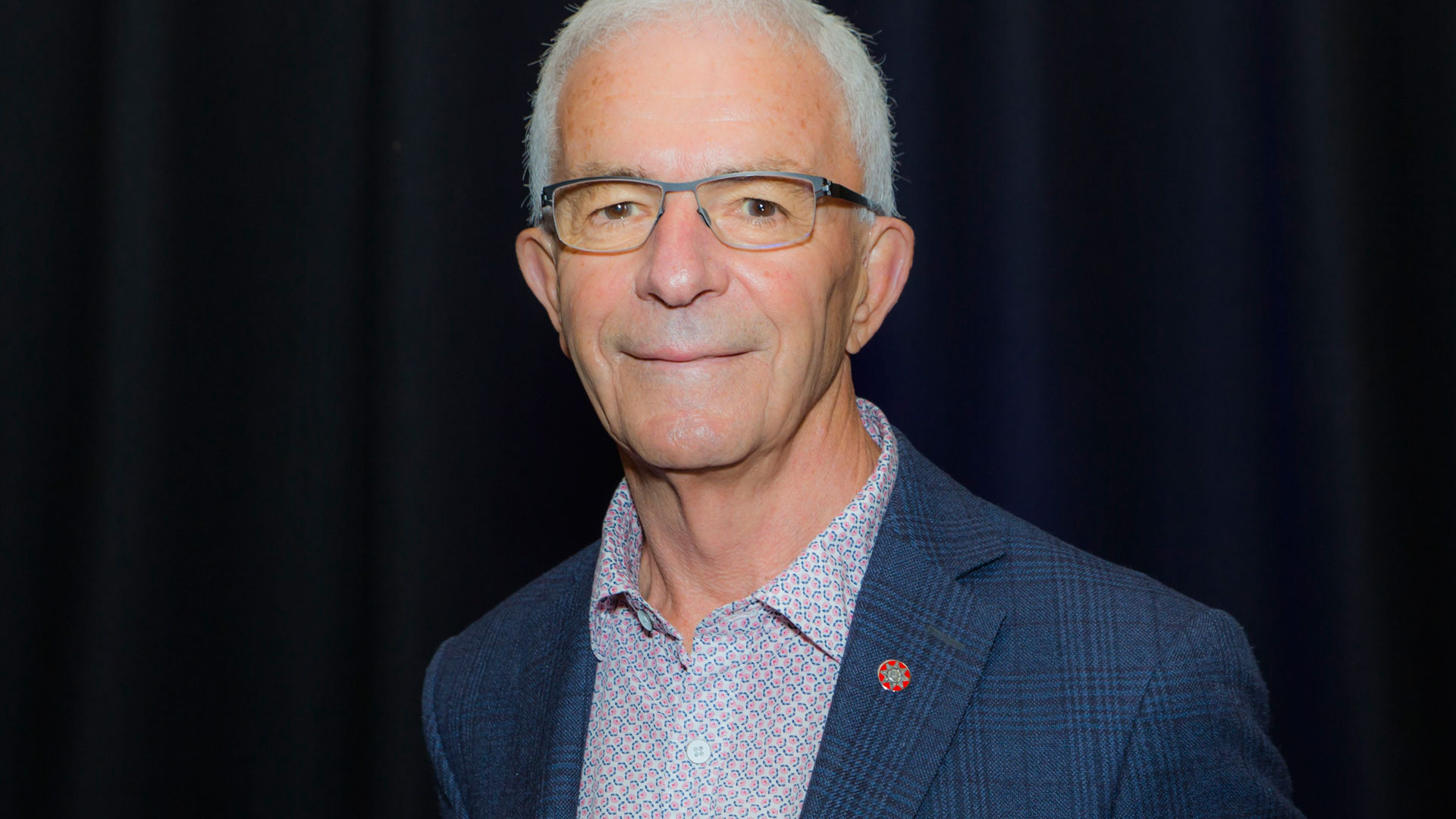
If you’ve got a bottle of wine and you sell it, you reduce stock and when things get tough, the first things banks are going to ask you is, is stock too high? So that reduces stock. If you’ve got a cash flow problem, if you sell your wine, you will create cash.
By selling wine, you are going to gain three things, it is the logical thing when things get tough; increase your sales reps, put more training into them, more effort, which we are doing right now, we are doing regular training. The other thing, if you do a lot of training, you reduce your staff turnover. We have proven that.
About 30 years ago, we have no staff turnover in our sales force for about ten years, except one guy went to Montana, but he came back six months later. Just over 12 months ago, we started training dramatically and we did a lot of work in picking out the trainers. Our staff turnover in the last 12 months majorly dropped by 50%. I believe the next 12 months, it will drop right down to zero. I just know by talking to the reps, they are all so excited – we are going to have three big conferences a year, plus stuff out in the field. People that were talking about leaving and now don’t want to go, they are waiting for the next sales conference. So for me, I think it is a solution. Just put all our effort into creating cash, reducing stock and making profit. There is a whole lot of other things we do, obviously. A bit of restructuring – don’t like the word, but you have to do that.
Find out more about our next event here

